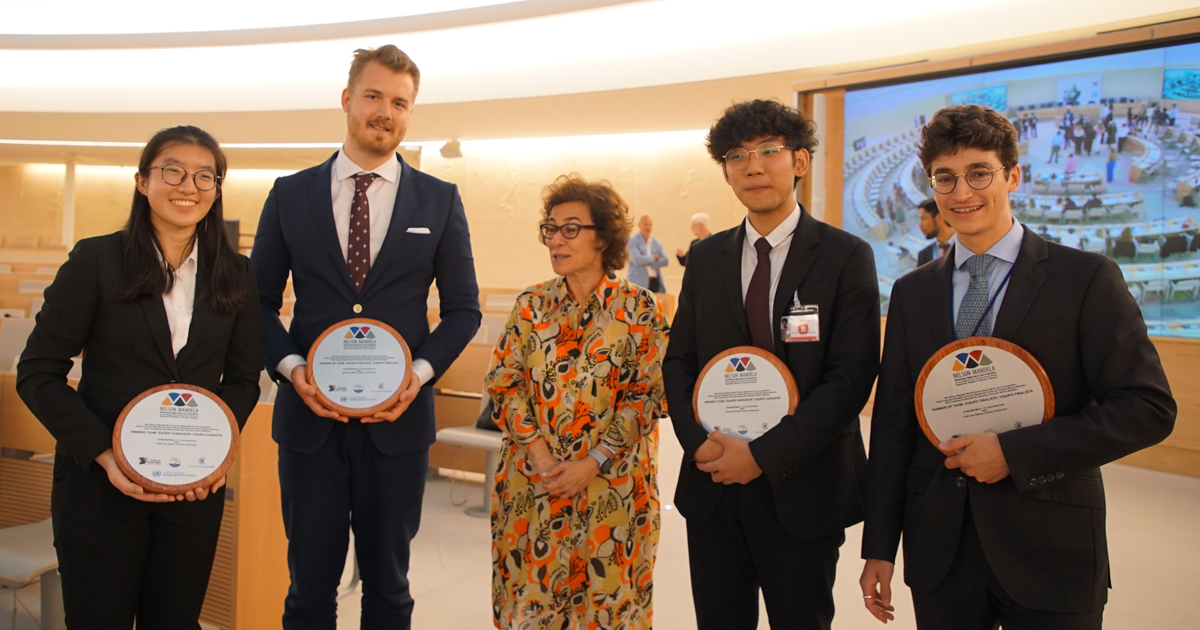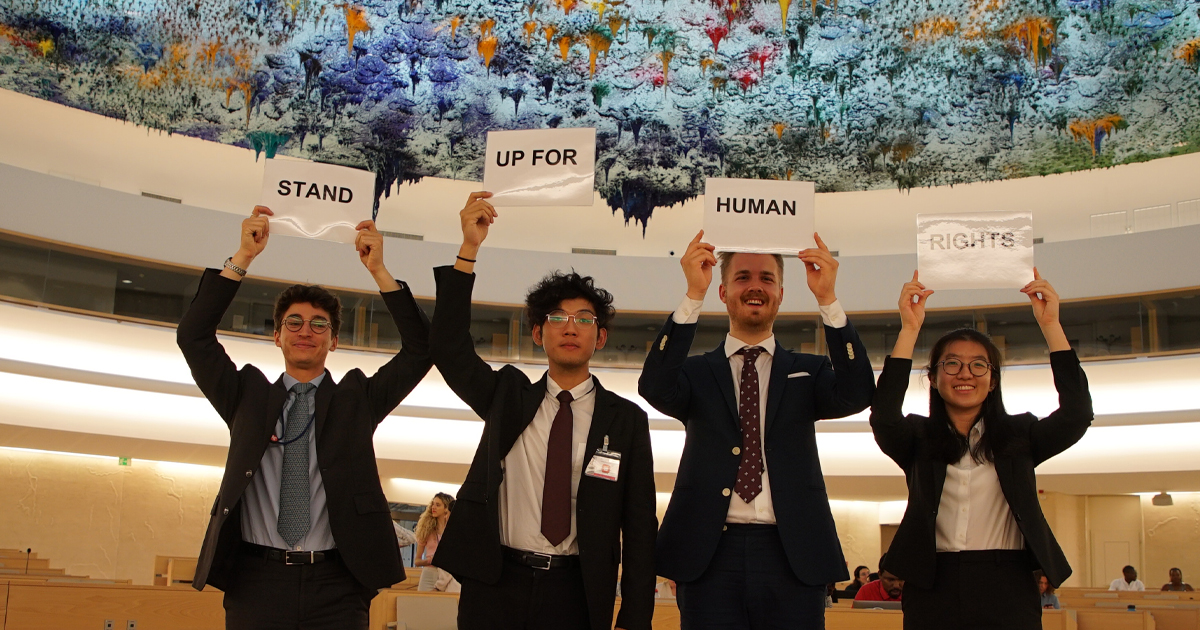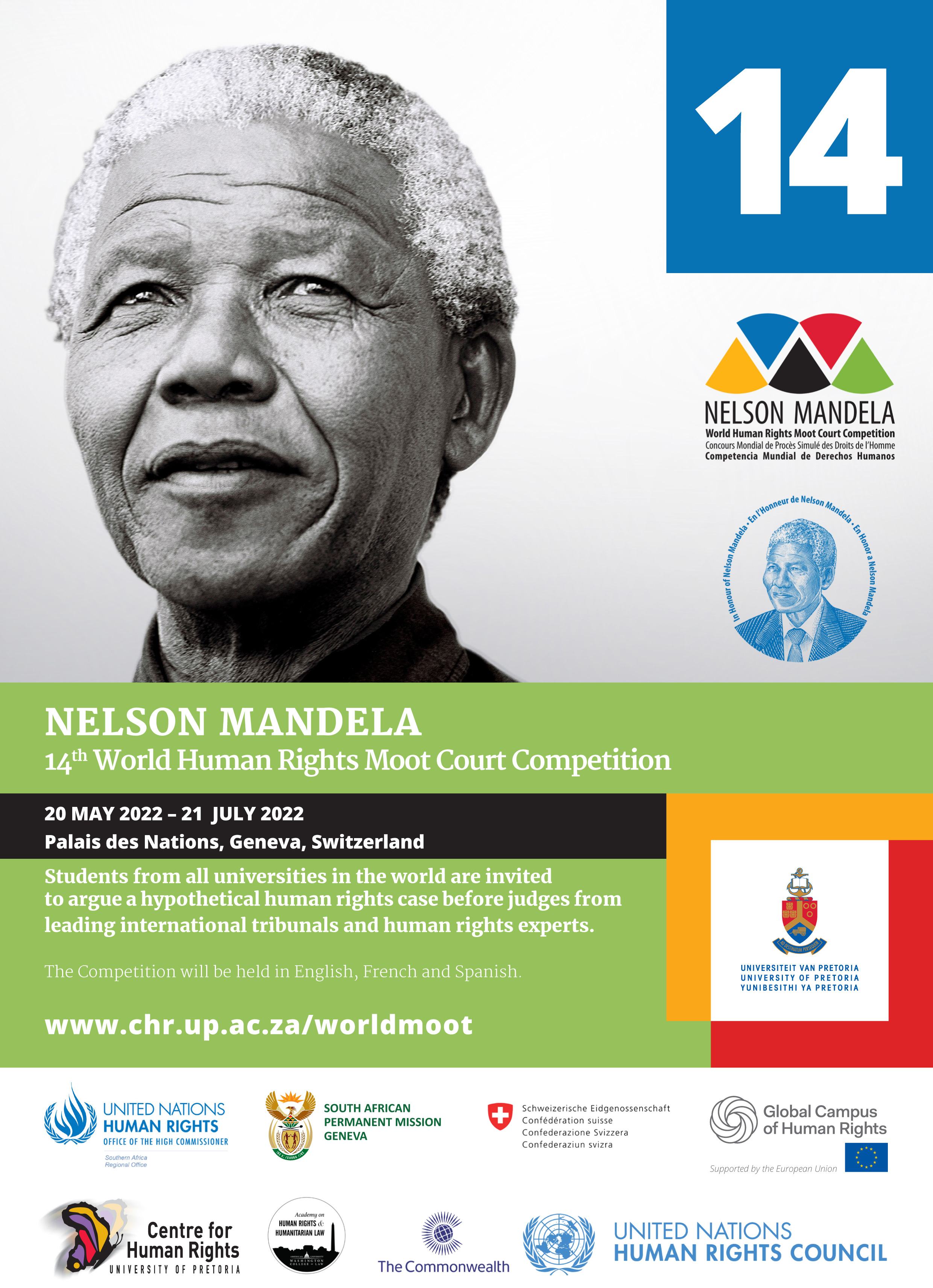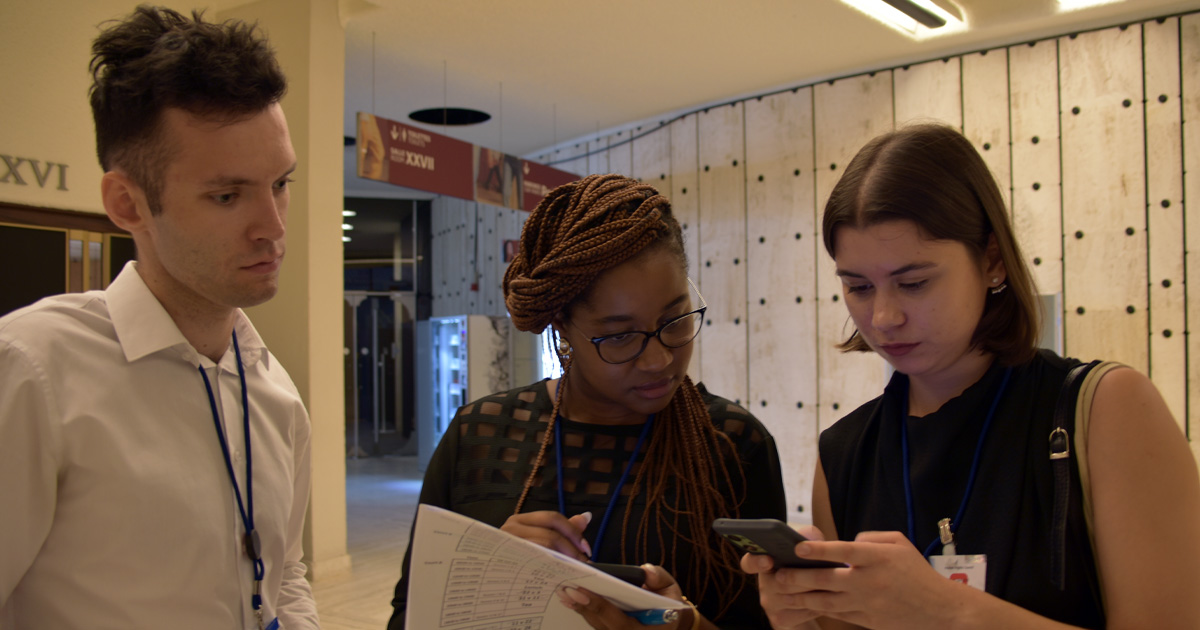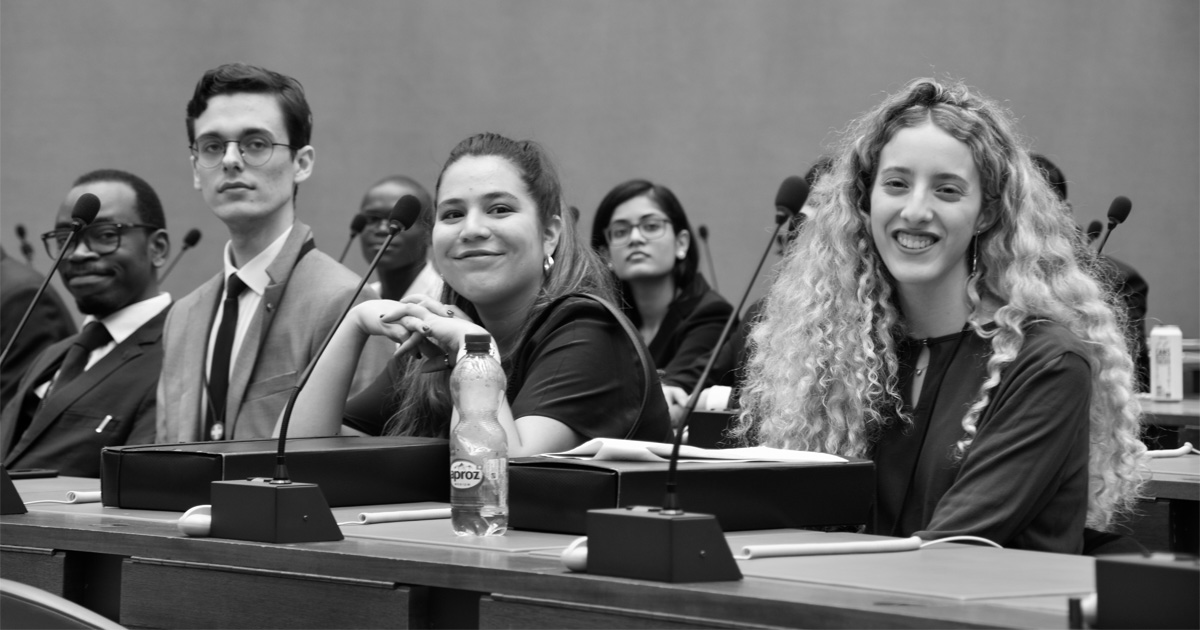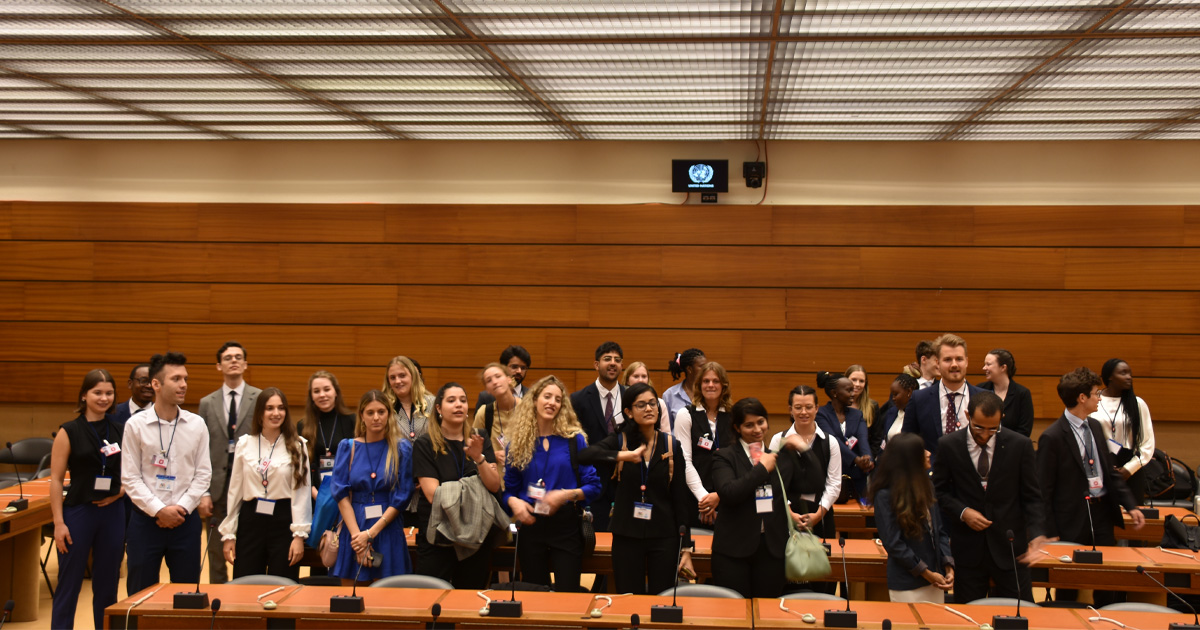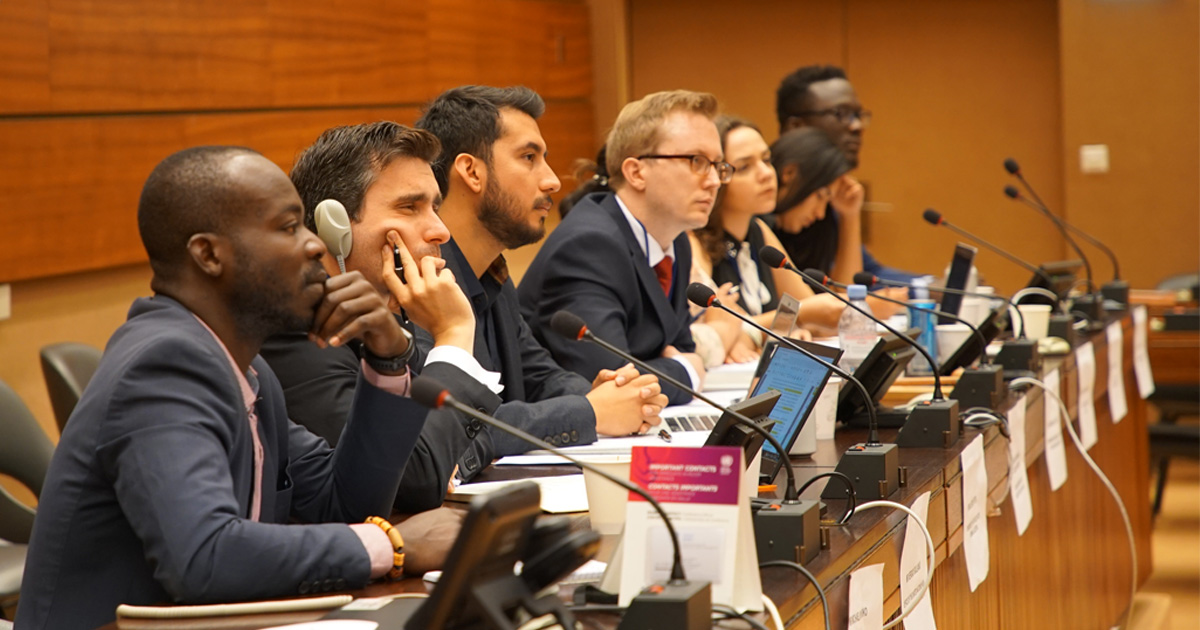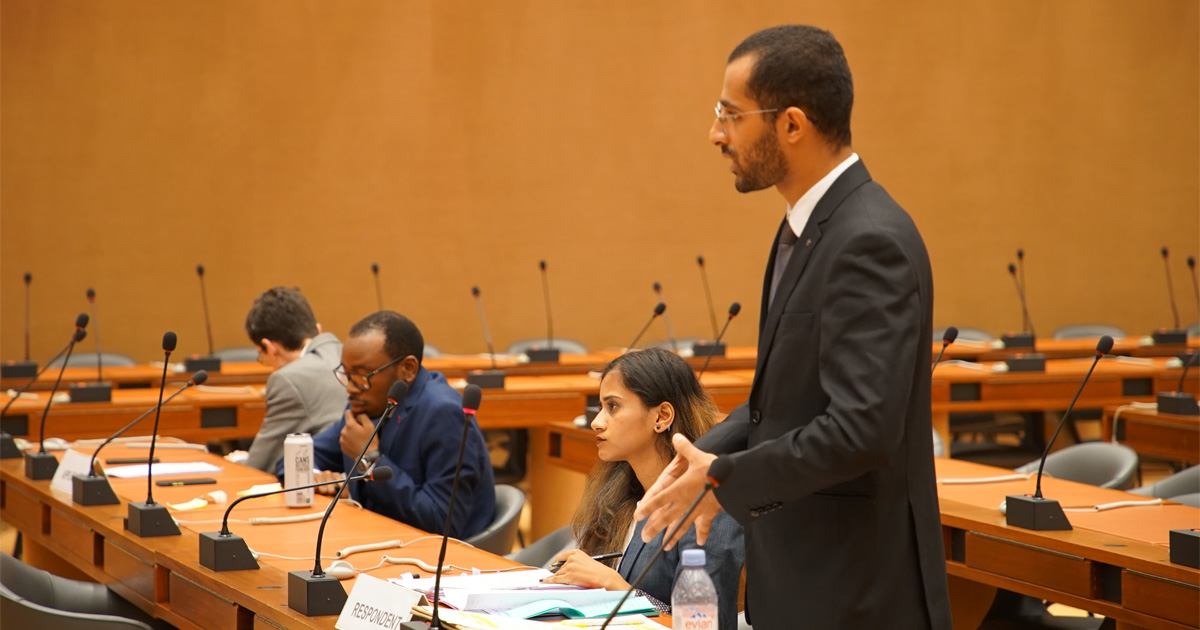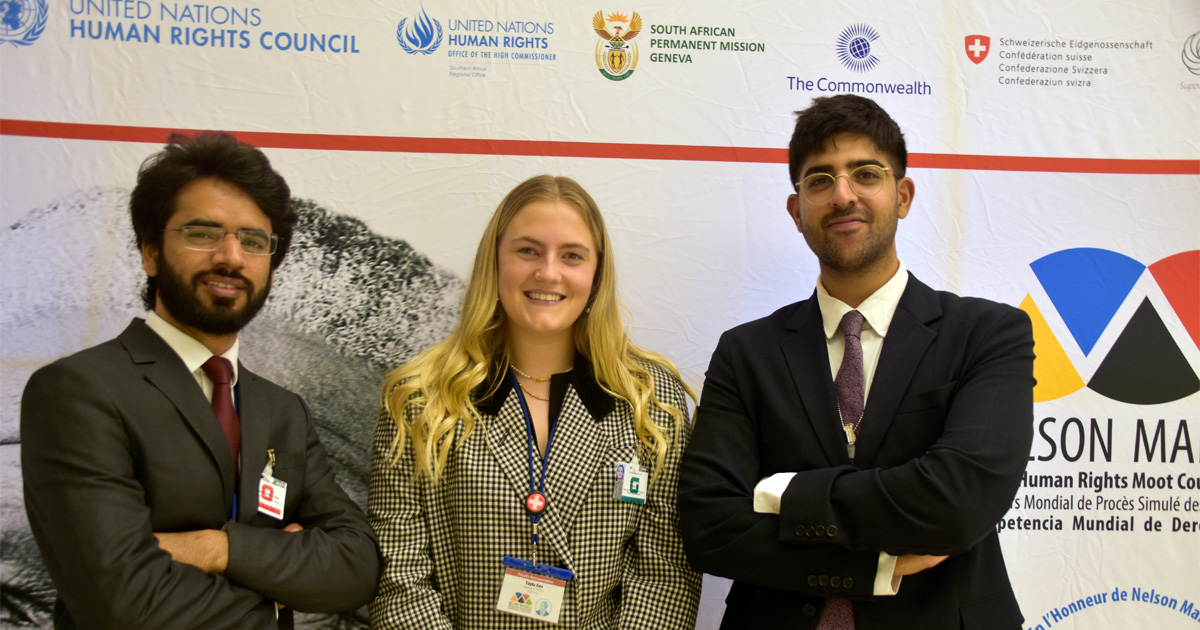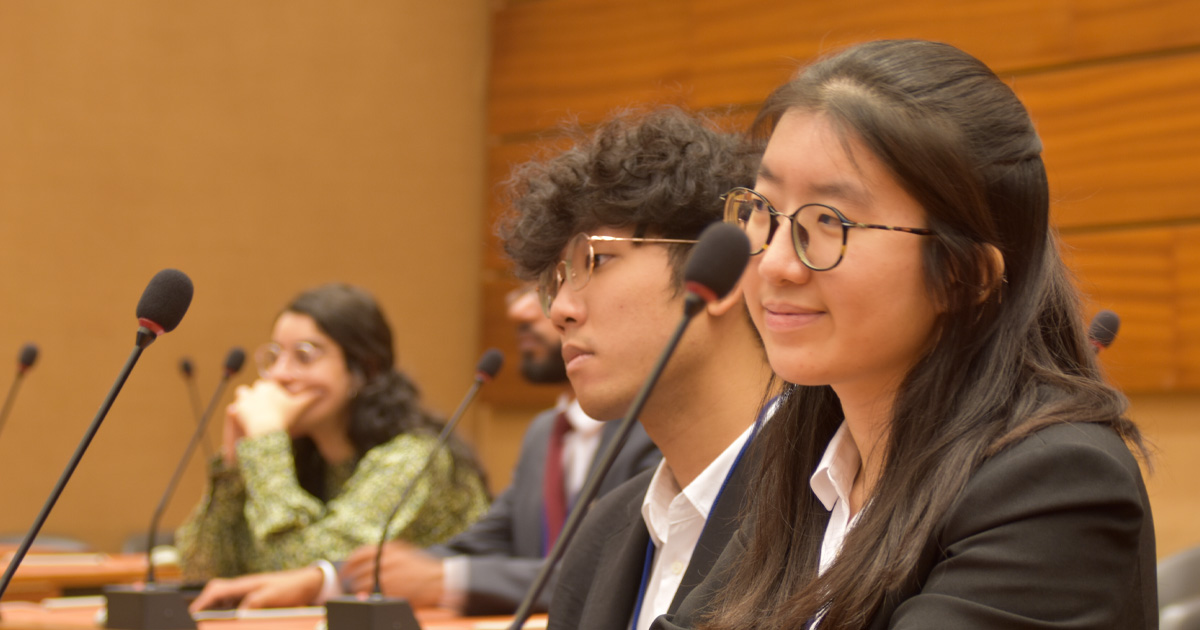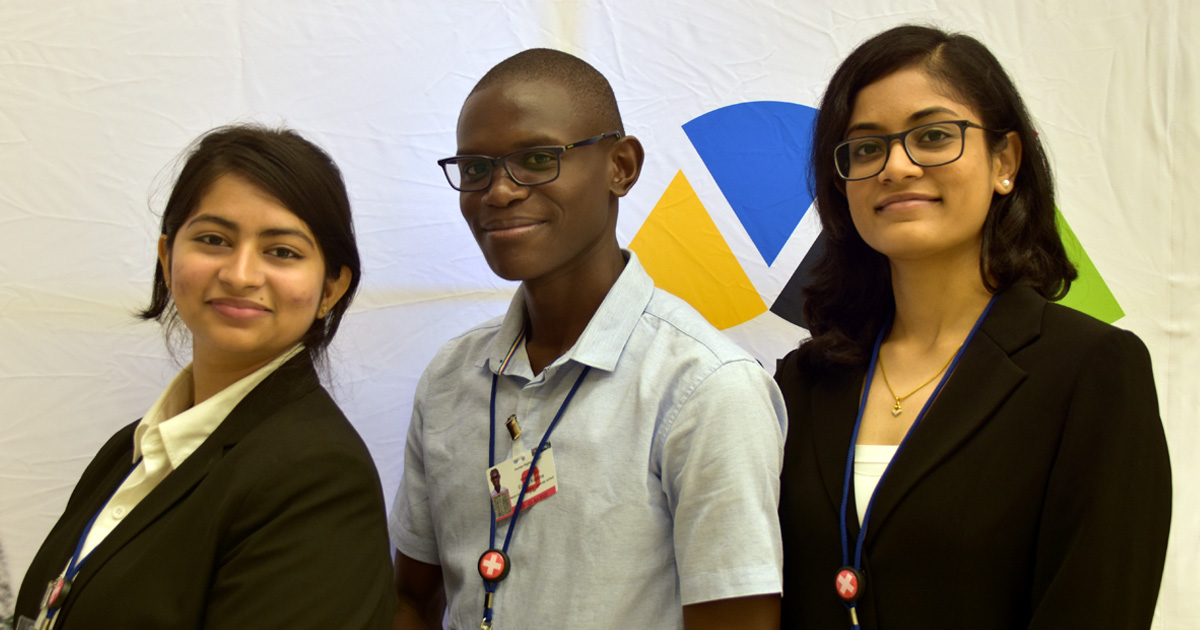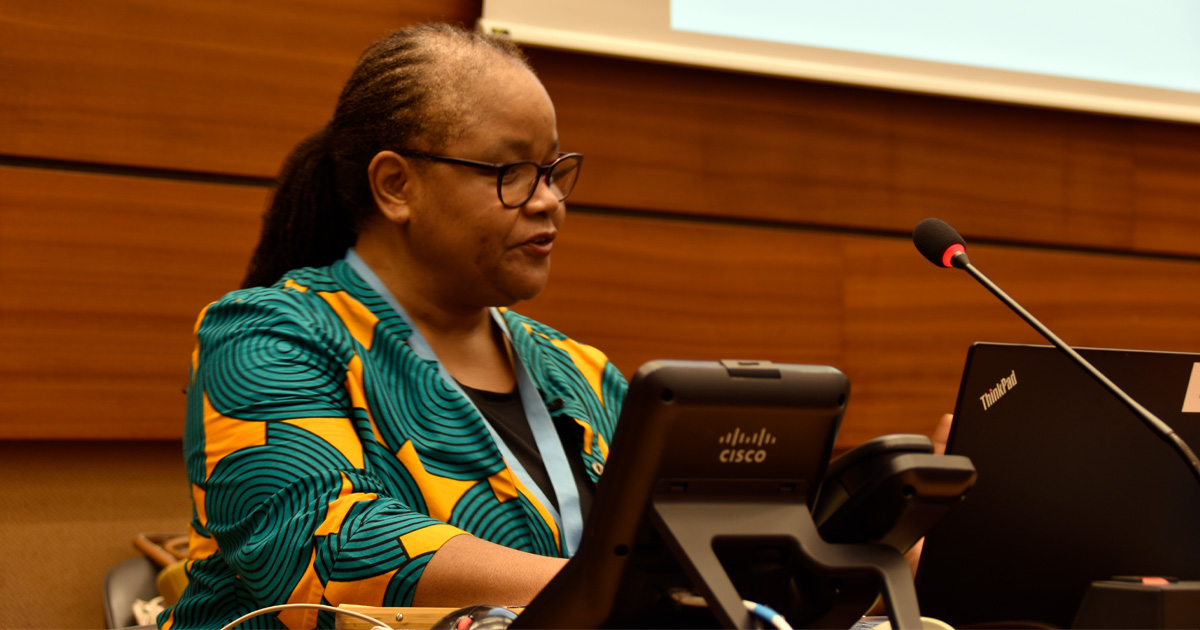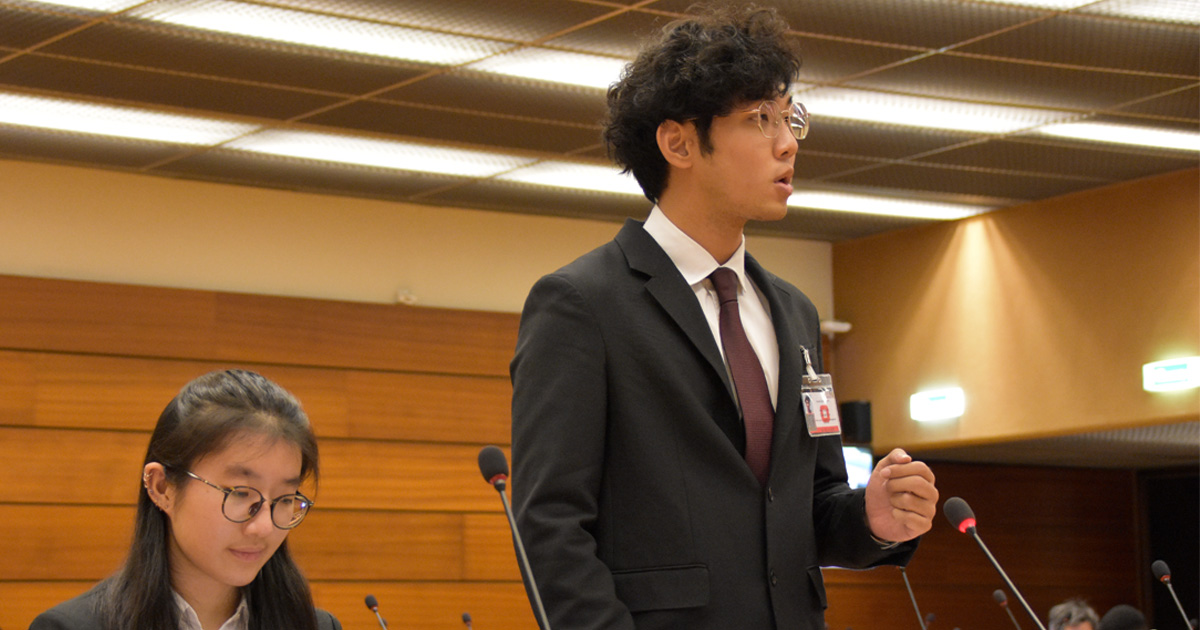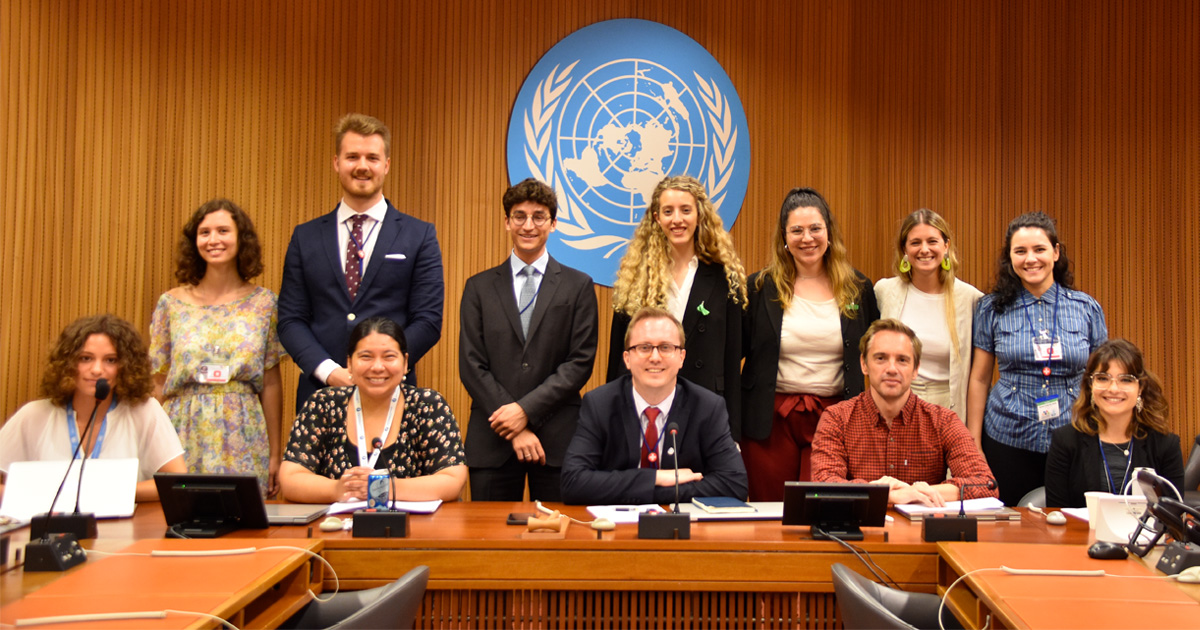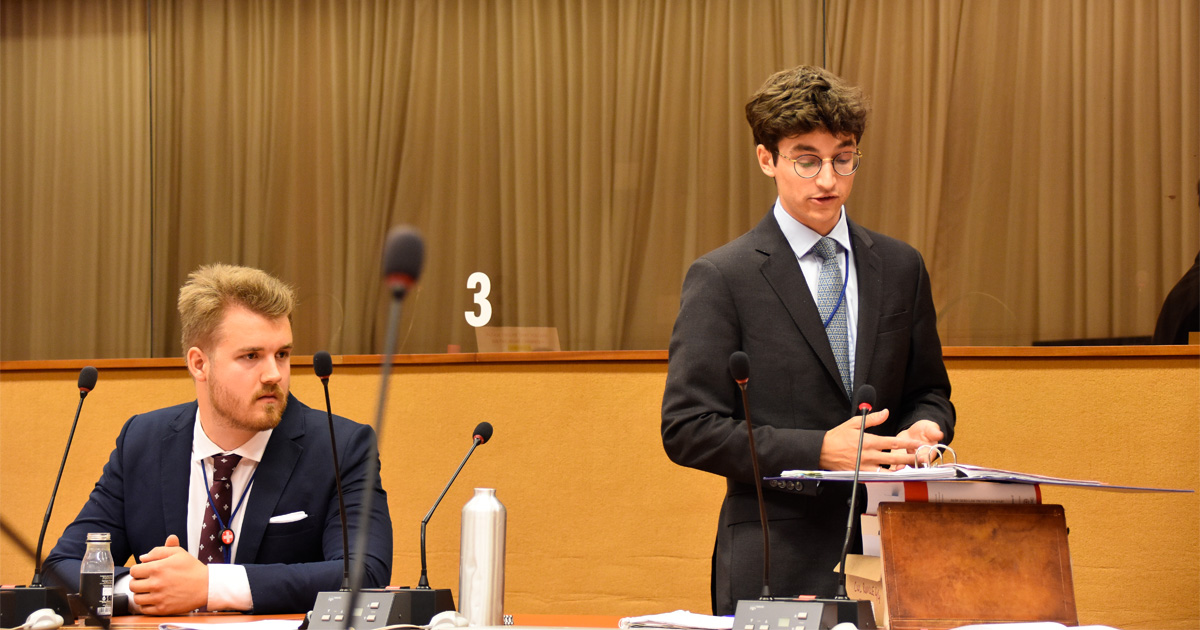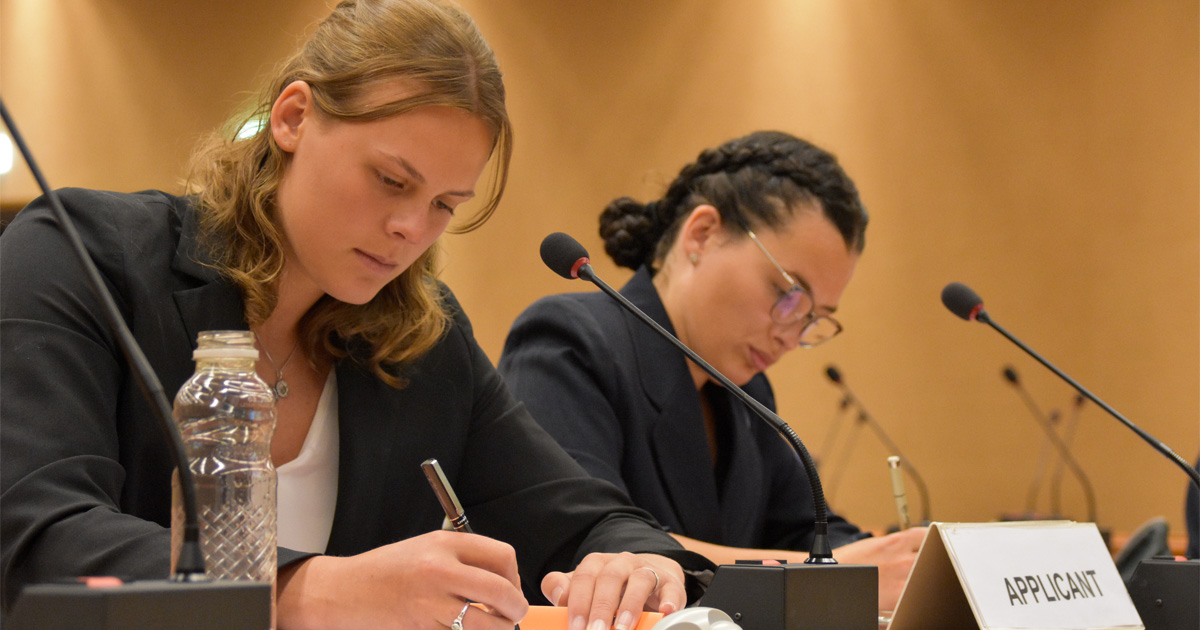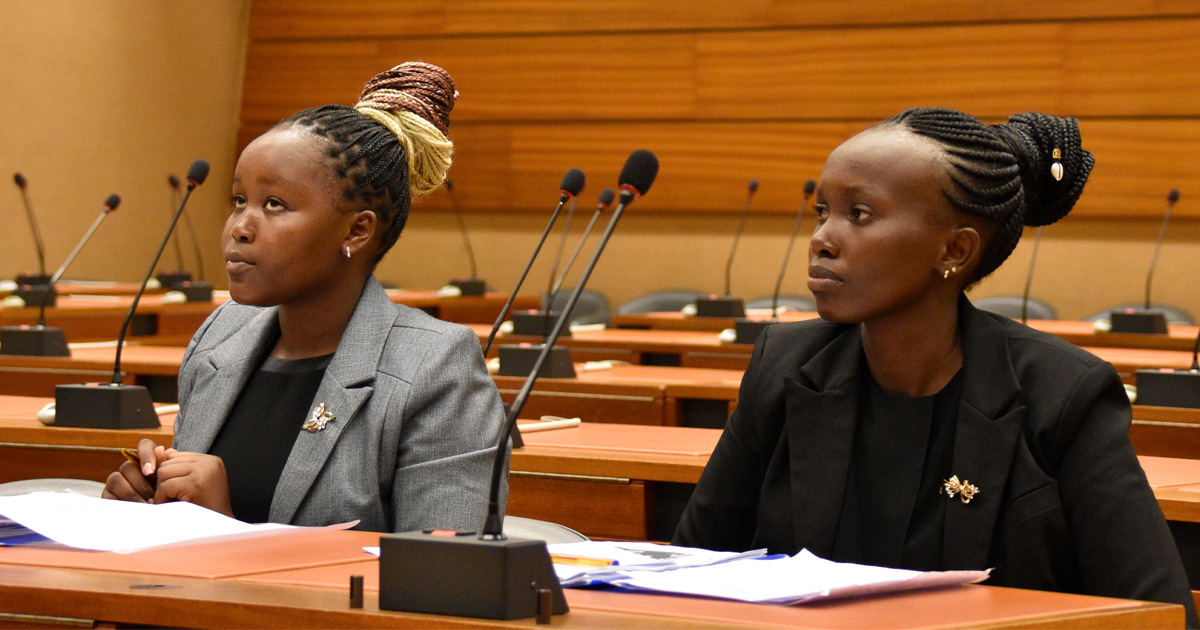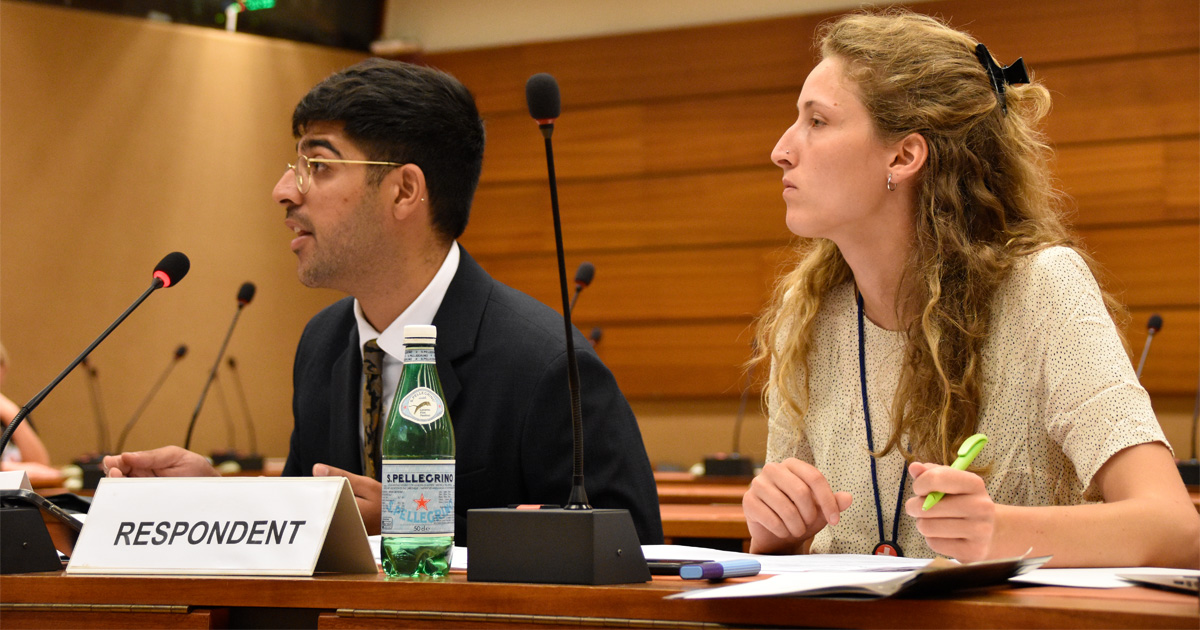The Centre for Human Rights, Faculty of Law, University of Pretoria, is delighted to announce the successful presentation of the 14th edition of the Nelson Mandela World Human Rights Moot Court Competition, which was held in a hybrid format. The team of Singapore Management University, Singapore, composed of Shu Yi Ling and Duncan Lim, claimed the title as 2022 winners. The runner up team is the Geneva Academy for International Humanitarian Law and Human Rights.
Ordinarily, the World Moot Court Competition, which focuses on the UN human rights treaties, takes place annually and fully in person at the Palais des Nations in Geneva, Switzerland. However, in light of the continued threat posed by the current global pandemic, the World Moot took place in a hybrid format. While the Moot ordinarily takes place around Nelson Mandela’s date of birth (18 July), the 2022 Competition saw the Preliminary Rounds spread out over a week, from 20 to 27 May 2022, with the Competition culminating in the Final Round on 21 July 2022. The Final Round took place in Room XX, the Human Rights and Alliance of Civilizations Room, at the UN European headquarters in Geneva, Switzerland. The UN Human Rights Council also holds its deliberations in this Room.
The two teams made it to the final round by advancing through two grueling preliminary and advanced rounds, surviving an intense quarter-final round, and emerging as winners in the semi-final rounds. The other semi-finalists were Geneva Academy for International Humanitarian Law and Human Rights (Switzerland) Singapore Management University (Singapore) and Symbiosis Law School, Pune (India). The Preliminary Rounds of the Competition took place separately in English and Spanish.
The Final Round was presided over by an esteemed panel of six judges from the European Court of Human Rights (Judge Ivana Jelic), the Inter-American Court of Human (Judge Veronica Gomez), the Supreme Court of Belize (Judge Genevieve Chabot) the Commonwealth Secretariat (Dr Shavana Haythornthwaite) the Global Campus of Human Rights (its Secretary General Professor Manfred Nowak) and the drafter of the hypothetical case Associate Professor Thompson Chengeta of the University of Liverpool. In 2022, Ms Ayushi Agarwal and Ms Gayathree Thazhatuveetil, winners of the 2019 Nelson Mandela World Human Rights Moot Court Competition, were also members of the judging panel.
In the spirit of the Moot Competition bringing the world together, this year’s edition had participants from 36 universities, from over 19 countries, representing the five UN regions and covering two language groups – English and Spanish.
The Nelson Mandela Moot Court Competition is organised annually by the Centre for Human Rights, together with the Academy on Human Rights and Humanitarian Law at the Washington College of Law, American University, Washington DC, and in collaboration with the Office of the High Commissioner for Human Rights in Geneva (Human Rights Council branch).
The Competition too place for the first time in 2009. Initially, it took place in Pretoria, at the University of Pretoria, but it had been presented in Geneva, Switzerland, from 2014 to 2019. Due to COVID-19 the 2020 and 2021 editions of the Moot Court were presented online while in 2022 the Competition adopted a hybrid format with the preliminary rounds taking place online from 20 to 27 May 2022 and the in person Final Rounds taking place from 18 to 21 July 2022.
The closing ceremony was well attended. The United Nations Deputy High Commissioner for Human Rights, Ms Nada Al Nashif, in her remarks congratulated participants for reaching the final round and celebrated all those who joined the Competition and commended participants for their interest and dedication to human rights. Ms Al Nashif added that World Moot participants form part of an “inspiring generation”.
The Director of the Centre for Human Rights, Professor Frans Viljoen, thanked everyone involved in organising the Moot. While emphasizing that it is a team effort, in particular of staff of the Centre for Human Rights, he highlighted the dedication and professionalism of the World Moot Court Coordinator, Dr Eduardo Kapapelo.
As part of the Nelson Mandela World Human Rights Moot Court Competition, the Third Annual Nelson Mandela Human Rights Lecture was held on 18 July 2022 at the University of Geneva. The United Nations Special Rapporteur on the promotion and protection of Human Rights in the context of Climate Change, Dr Ian Fry, led a panel discussion. The panel consisted of Dr Ashfaq Khalfan, Director of Climate Justice at Oxfam America, Ms Vanessa Nakate, Ugandan Youth Climate Activist and Ms Therese Arnesen, Human Rights Officer at the Office of the UN High Commissioner for Human Rights.
The panel, which focused on climate justice, reflected on the role of states, international institutions and people on the fight against climate change, the achievements in the field and continued challenges. The co-hosts of the lecture were the Geneva Academy for International and Humanitarian Law.
The Moot is made possible through the assistance of the European Union, through the Global Campus of Human Rights, and the government of Switzerland.
The Competition is unique in reaching a broad base of participants, including from those parts of the world where regional human rights systems have not been established, or have only been recently introduced.
Preliminary round teams
In 2022, the World Moot brought together the following participants during the Preliminary Rounds:
Africa Group
1. Botswana University of Botswana
2. Kenya Strathmore University
3. Kenya Kabarak University
4. Nigeria Lagos State University
5. Nigeria Ebonyi State University
6. Nigeria Mnamdi Azikiwe university, Awka
7. Nigeria University of Lagos
8. Nigeria University of Calabar
9. South Africa University of Fort Hare
10. South Africa University of Pretoria
Asia Pacific Group
1. China China University of Political Sciences and Law
2. Cambodia Royal University of Law and Management
3. Cambodia National University of Management
4. Bangladesh Chittagong Independent University
5. Bangladesh State university of Bangladesh
6. India Symbiosis Law School, Pune
7. India National Law Institute University, Bhopal
8. Malaysia University of Malaya
9. Singapore National University of Singapore
10. Singapore Singapore Management University
Latin America & Caribbean Group
1. Argentina University of Buenos Aires
2. Brazil State University of Bahia
3. Brazil Centro Universitario Curitiba (UNICURITIBA)
4. Brazil University of Sao Paulo
5. Peru Universidad Cesar Valleo
6. Ecuador Universidad Nacional del Santa
Western Europe & Others Group
1.Australia University of New South Wales
2. Australia University of New Castle
3. Australia Macquarie University
4. Germany Friedrich-Alexander - Universitat Erlangenn, Nuremberg
5. Canada St. Thomas University
6. Netherlands University College Roosevelt
7.Switzerland Geneva Academy of International Humanitarian Law and Human Rights
8. Turkey Koc University
9. United Kingdom Oxford University
10. United States of America US College of William and Mary
Eastern European Group
1. Belarus Belarusian State University
Memorials (written arguments) ranking
All registered teams are required to submit written arguments (memorials).
These memorials are assessed and serve as the basis on which 10 teams per UN region are selected for participation in the Preliminary Rounds.
Best Spanish-language memorials
1. Universidad Nacional del Santa (Peru)79%
2.Universidad Cesar Valleo (Peru)68%
Best English-language memorials
1. University of Oxford (United Kingdom) 91.2%
2. University of Pretoria (South Africa ) 91%
3. University of Buenos Aires (Argentina) 89%
4. Centro Universitário Curitiba (UNICURITIBA) (Brazil) 88%
5. University of Fort Hare (South Africa) 87.5%
6. University of Calabar (Nigeria) 86.5%
7. Koc University (Turkey) 85%
8. University of Botswana (Botswana) 85.5%
9. Kabarak Univeristy (Kenya)84.5%
10. University of New South Wales (Australia) 83%
Best teams in the preliminary rounds
Top team in the Spanish-language Preliminary Rounds
1. Universidad Nacional del Santa (Peru) 79%
Top ten teams in the English-language Preliminary Rounds
1. University of Oxford (United Kingdom) 93.55%
2.University of Buenos Aires (Argentina) 89.57%
3. Kabarak University (Kenya) 87.90%
4.Symbiosis School of Law, Pune (India) 86.67%
5. University of New South Wales (Australia) 86.50%
6. Singapore Management University (Singapore)85.95%
7. Geneva Academy of International Humanitarian Law and Human Rights (Switzerland) 84.63%
8. St. Thomas University (Canada) 84.30%
9. University of Pretoria (South Africa)83.40%
10. Koc University (Turkey) 83.25%
Quarter-finalists
1.Geneva Academy for International and Humanitarian Law (Switzerland)
2. Singapore Management University (Singapore)
3. University of Oxford (United Kingdom)
4. Symbiosis Law School (India)
5. Kabarak University (Kenya)
6. St. Thomas University (Canada)
7. University of Buenos Aires (Argentina)
8. University of New South Wales (Australia)
Semi-finalists
1.Geneva Academy for International and Humanitarian Law (Switzerland)
2.Singapore Management University (Singapore)
3.University of Oxford (United Kingdom)
4. Symbiosis Law School (India)
Finalists
1.Geneva Academy for International and Humanitarian Law (Switzerland)
2.Singapore Management University (Singapore)
Winning team
Singapore Management University (Singapore)
